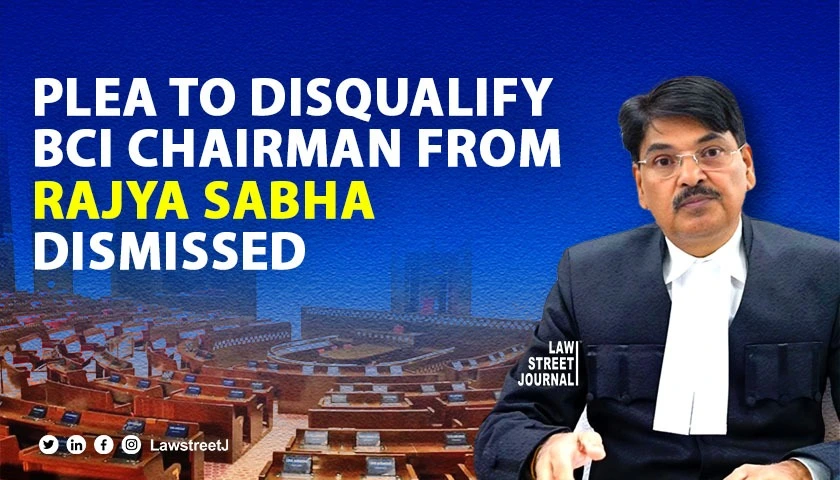New Delhi: The Delhi High Court has delivered a significant judgment, dismissing a petition that sought to disqualify Bar Council of India Chairman Manan Kumar Mishra from the Rajya Sabha. Justice Sanjeev Narula, while imposing costs of Rs. 25,000 on the petitioner, made important observations regarding the constitutional framework for challenging parliamentary memberships and election disputes.
Delhi HC Upholds Constitutional Framework for Parliamentary Disqualification Disputes
The court addressed a petition filed by Advocate Amit Kumar Diwakar, who argued that Mishra could not simultaneously hold the positions of BCI Chairman and Rajya Sabha member. The petitioner relied on Article 102(1)(a) of the Constitution, contending that the role of BCI Chairman constituted an “office of profit.” The court noted: “The Petitioner contends that the role of Chairman of BCI entails statutory functions, significant administrative responsibilities, quasi-judicial functions, and financial powers.”
Addressing the legal framework, the court observed that the Constitution provides a specific mechanism under Article 103 for addressing disqualification questions. The court emphasized: “When a question regarding the disqualification of a Member of Parliament arises, such a matter must be referred to the President of India for a decision. Crucially, before rendering any decision, the President is constitutionally mandated to obtain the opinion of the Election Commission, and act accordingly.”
The court highlighted the impropriety of using a writ petition to challenge an election, stating: “Section 80 of the Representation of the People Act, 1951, explicitly provides that an election can only be challenged by way of an election petition presented in accordance with the Act. In light of this statutory framework, a writ petition under Article 226 is not the appropriate forum for addressing an election dispute.”
Petition Lacked Merit and Was an Abuse of Legal Process, Says Justice Narula
Justice Narula provided important context about election challenges, citing the Supreme Court’s judgment in Indrajit Barua vs. Election Commission of India, which established that “election-related disputes are subject to strict procedural requirements, and bypassing these by invoking Article 226 of the Constitution would undermine the legislative intent behind the enactment of the Representation of the People Act.”
The court also addressed the issue of locus standi, noting that the petitioner, “neither being an elector nor a candidate in the election in question, lacks the necessary locus standi to initiate an election petition.” The court emphasized that allowing such petitions would amount to circumventing established legal procedures.
Concluding the matter, the court dismissed the petition with costs, directing: “The petition is dismissed with a cost of Rs. 25,000, to be deposited by the Petitioner with the Delhi State Legal Services Authority within four weeks from today.” The court found the petition not only lacking in merit but also an abuse of the legal process.
[Read Order]



![Delhi High Court Sets Aside Arbitral Tribunal's Award Against NHAI in Highway Project Delay Case [Read Judgment]](/secure/uploads/2023/07/lj_9605_23374c2e-392c-4491-a2fe-f2f12fc5272f.jpg)
![Delhi Court Rejects Stay Request in Defamation Case Against Rajasthan CM Ashok Gehlot [Read Order]](/secure/uploads/2023/08/lj_5208_80de1ddc-d76a-4f7f-b180-408e3ae14fb4.jpg)





